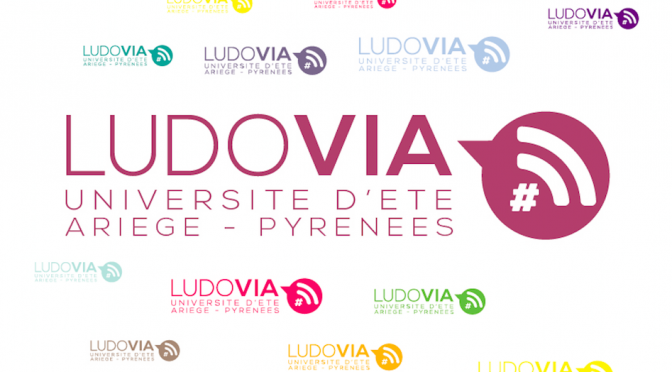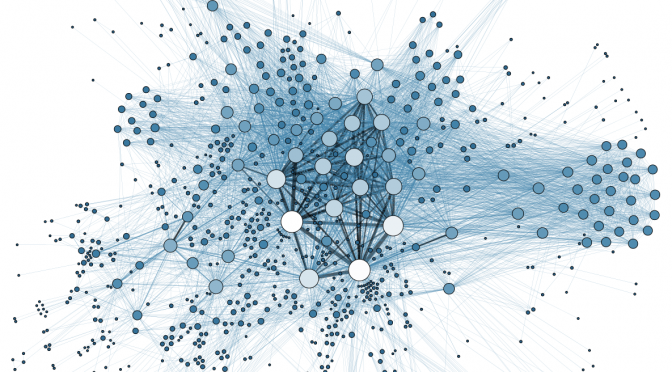The conference with the help of GIS “Jeu et Sociétés” focuses on Gamification of Society, it will hold in Paris December 6 and 7 2018 at Maison de la recherche de l’Université de la Sorbonne nouvelle – 4 rue des Irlandais 75005.
The registration is free but required (please write to emmanuelle.savignac@sorbonne-nouvelle.fr).
Day of 6 December
9h30 : Accueil des participant.e.s
10h00 : « La naissance d’un processus de gamification : le cas des sociétés préindustrielles », Elisabeth Belmas (professeure émérite, université Paris 13, IRIS (UMR 8156 CNRS‐Inserm‐EHESS‐UP13), MSH Paris‐Nord) – président de séance : Stéphane Le Lay (IPDT)
11h30 : Poser la question politique des bénéfices – président de séance : Pierre Lénel (LISE, CNAM)
‐ « Datagame : gamifier le crowdsourcing et partager les richesses ? », Julian Alvarez (Trigone CIREL ‐ Université de Lille 1, DeVisu ‐ Université de Valenciennes, Play Research Lab ‐ Serre Numérique)
‐ « La gamification du politique. L’élection présidentielle de 2017 et les jeux vidéo partisans », Eric Treille (Université de Rennes ‐ EHESP ‐ CNRS)
13h00 : Pause déjeuner
14h00 : La gamification comme réponse capitaliste aux enjeux de gouvernance – présidente de séance : Marie‐Anne Dujarier (Université Paris Diderot, LCSP)
‐ « Gamification as governmentality. Using game technologies to capture attention in the
midst of uncertainty », Sébastiàn Gomez (Leuphana Universität Lüneburg, ICAM)
‐ « Rhétoriques de la “gamification” et perspective historique : le cas des dispositifs “pédago‐ludiques” de formation à la gestion d’entreprise », Léo Touzet (Université Toulouse Jean Jaurès, CERTOP)
‐ « Parier sur le vivant ? Place et sens du jeu en “biologie de synthèse” », Gaëtan Flocco (UEVE Paris Saclay, Centre Pierre Naville) et Mélanie Guyonvarch (UEVE Paris Saclay, Centre Pierre Naville)
16h00 : Extension du domaine du jeu: parier, miser, apparier – président de séance : Jean Frances (GSPR, EHESS)
‐ « La “gamblification” de la société ou l’extension du domaine des jeux d’argent, à travers l’exemple des joueurs amateurs de poker et des joueurs dits pathologiques », Aymeric Brody (Université Saint‐Louis Bruxelles, CASPER)
‐ « Sites de rencontre en ligne : comment se gamifie l’amour 2.0 ! », Marlène Dulaurans (Université Bordeaux Montaigne, MICA) et Raphaël Marczak (Université Bordeaux Montaigne, MICA)
17h30 : « Les paradoxes de la gamification », Gilles Brougère (Université Paris 13, EXPERICE) – présidente de séance : Emmanuelle Savignac (Université de la Sorbonne nouvelle, Cerlis)
18h30 : Cocktail
Day of 7 December
9h30 : Accueil des participant.e.s
10h00 : « De l’expérience ludique à la ludification de l’expérience : quelques enjeux et perspectives », Nathalie Zaccaï‐Reyners (FRS‐FNRS, Université libre de Bruxelles) – présidente de séance : Emmanuelle Savignac (Université de la Sorbonne nouvelle, Cerlis)
11h30 : L’ingénierie du jeu – président de séance Eric Dagiral (Paris Descartes, Cerlis)
‐ « La déludicisation : plaidoyer pour une approche symétrique des innovations ludiques », Victor Potier (Université Toulouse Jean Jaurès, CERTOP)
‐ « La gamification de nouveaux territoires sportifs : l’expérience du spectateur et du sportif connectés à l’espace de jeu », Alain Schoeny (Université d’Orléans, CEDETE) et José Chaboche (Université d’Orléans, CEDETE)
13h00 : Pause Déjeuner
14h00 : « De quels jeux parlent les promoteurs et les détracteurs de la gamification ? », Olivier Caïra – président de séance : Jean Frances (GSPR, EHESS)
15h30 : Gamifier/discipliner les corps – président de séance : Stéphane Le Lay (IPDT)
‐ « Du sport au jeu en entreprise ‐ La gamification et ses conséquences sur la valeur travail », Romain Rochedy (Université Paris Diderot, LCSP)
‐ « Tableau de primes pour l’usage du pot ? Gamification de l’éducation à la “propreté” : pratiques et résistances », Victoria Chantseva (Université Paris 13, EXPERICE)
17h00 : Synthèse par Pierre Lénel et Emmanuelle Savignac



